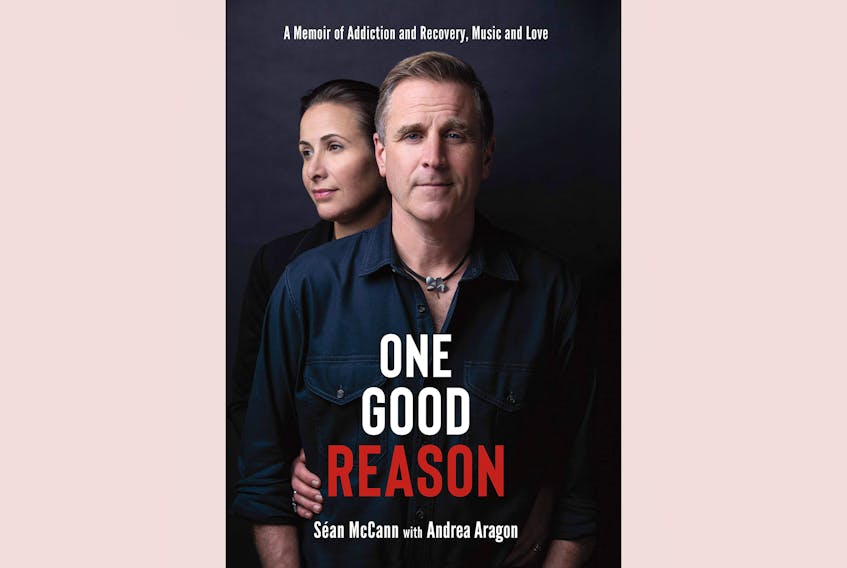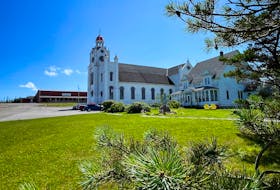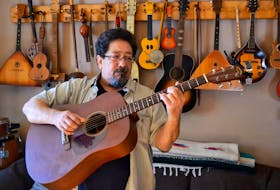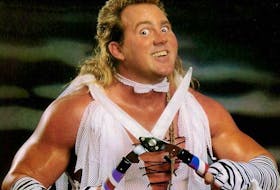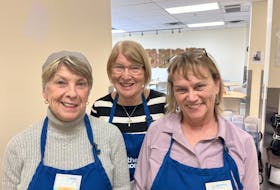Séan McCann is a bona fide music star and prominent mental activist, a household name not just across this province.
In addition, much of his personal and professional story made local and national headlines as it unfolded. Indeed from the general promotion and even the first lines of this book we “know” what happened: McCann drank heavily, his partner Andrea Aragon gave him an ultimatum, he stopped, and he also left Great Big Sea (“got off the bus” is his term).

Though the bulk of the writing comes from McCann, Aragon’s input, and her own backstory, is weighted and cogent.
They met great. After a Great Big Sea concert in Vail, Colorado, there was a “meet and greet” some fans had paid extra to get into — events McCann did not like and would not have attended had he known “because they are superficial and insincere and leave most fans feeling cheated and underwhelmed.”
But the organizer does introduce McCann to a friend he’s given a free ticket to, and McCann finds himself seated next to “the most beautiful woman I have ever met.”
Their attraction was immediate. But both expected this to be a one-night stand — unusual for her, less so for him.
Aragon was recently divorced from a short marriage; McCann had a live-in girlfriend back in St. John’s.
But there was a pull. Great Big Sea was soon scheduled to perform at the Minnesota State Fair in Aragon’s hometown.
She decided to go, thinking destiny might reunite them. It didn’t.
She thought it over, and she wrote a letter. The only address she had was a PO Box for GBS’s fan base —which the band hardly ever checked anymore. Here fate, in the form of a diligent postal worker, did intervene.
McCann got her letter, they arranged to meet, and that was that.
Aragon was joining a party.
GBS was known for its carousing; backstage “our daily show ‘rider’ had also grown to real rock ’n’ roll proportions: 1 bottle of single malt whiskey or Jamaican black rum/4 bottles of red wine (Australian and Californian)/48 bottle of imported beer (Stella or Corona);” the band decamped to bars and pubs after concerts; the fridges on the tour bus were well-stocked.
In St. John’s, McCann installed a bar in the basement of his house, walls painted red.
By many standards, McCann had hit the jackpot.
A beloved band, hit songs, loyal following, sold-out venues.
But he was miserable. His fans, and, more important, his partner, might adore him, but he was ashamed of himself. His drinking had no off switch because he was futilely drowning his sorrows, his secret: As a teenager he had been sexually assaulted by a priest, a trusted family confident, and a man he considered his best friend.
This corrosive line underscores the evolution of his musical career.
Starting when Bob Hallett “sat behind me in Dr. Everard King’s English Romantic Poetry class at MUN and in between Shelley and Keats we found ourselves discussing the lyrics of Joe Strummer and Shane McGowan.”
They founded the seven-member N.R.A. (the Newfoundland Republican Army), which “quickly imploded.”
Next was Rankin Street, with Jackie St. Croix and Darryl Power. The band “was not very good. We could all sing, but the only member who could actually play his instrument was Darryl.” Their energy and focus was enough to grow them into a good pub band, but no more.
Then, in the early 1990s, major labels started to take serious interest in East Coast Music. At that time McCann and Power saw Alan Doyle performing with Staggering Home at the Rose and Thistle.
Even with a small crowd “he played the room like it was Wembley Stadium.” The trio did one gig as Best Kind, then Hallett “jumped on stage with his mandolin.”
He wanted to join but insisted they change the name. “Things started to happen really fast for us after that.”
As an insider’s decoding of the music business, McCann shares lots about logistics and playlists and branding.
But this is not just the story of a successful musician, it’s the story of a successful musician who hit rock bottom.
On Nov. 9, 2011, McCann was in a period of “re-entry” from his “Son of a Sailor” tour, which had been “an unmitigated disaster. Poorly managed and under-promoted.”
He had drunk into blackouts, long routine by then, but then woke up “naked on the floor of my hotel room wondering how I got there … and with whom.” He doesn’t even know if he cheated or not.
He told Aragon. She was shaken, but gave him a choice. He put down the glass of Californian chardonnay he had been drinking.
“I haven’t touched a drop since.”
Many struggles followed, including an acrimonious breakup with Great Big Sea. McCann details it all in heartfelt, heart-breaking prose, in his voice, frank, funny, raw.
Joan Sullivan is editor of Newfoundland Quarterly magazine. She reviews both fiction and non-fiction for The Telegram.

